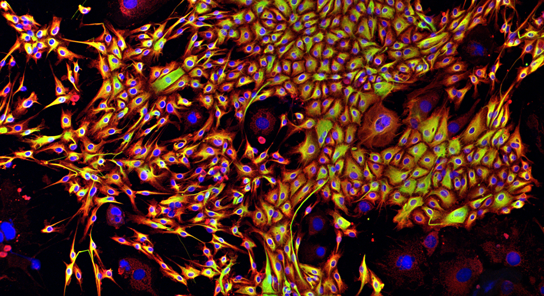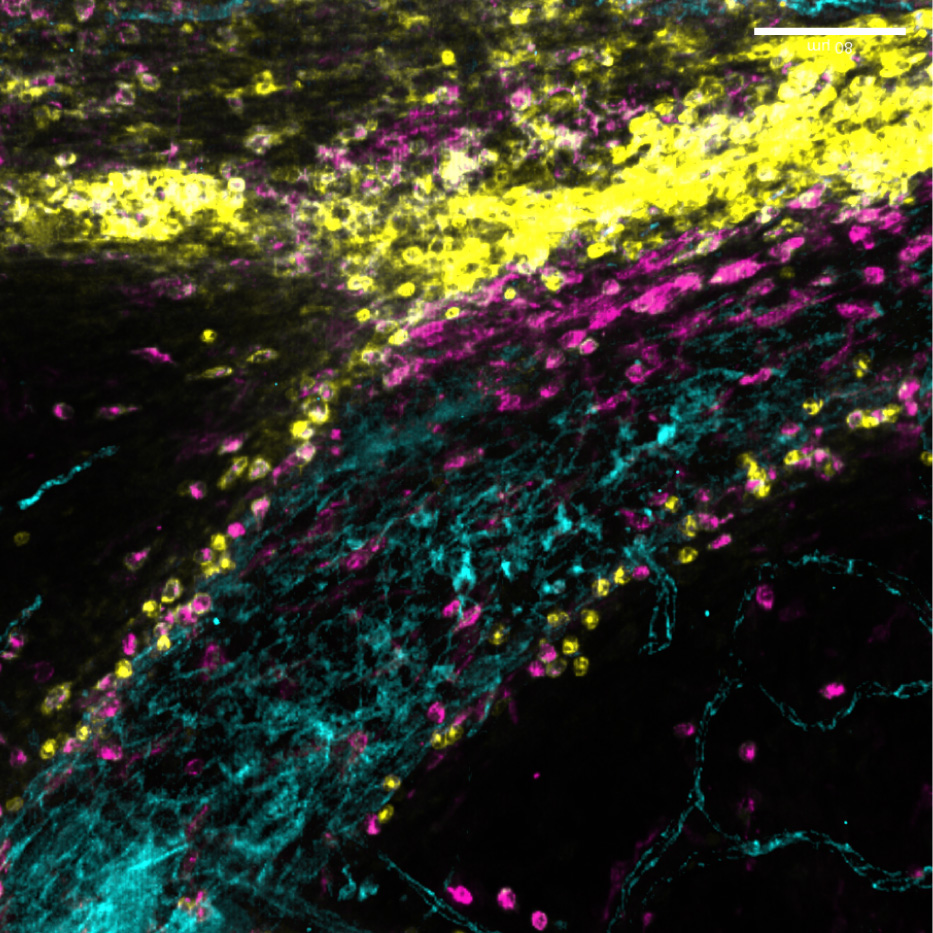Dr Marzia Munafò awarded Graduate Student Thesis Prize

Dr Marzia Munafò has won this year’s Graduate Student Thesis Prize. The Prize is awarded each year to an exceptional CRUK Cambridge Institute graduate student who has completed an outstanding piece of work during their studies.
Dr Marzia Munafò completed her PhD in the Hannon Group, supervised by Prof Greg Hannon and Dr Benjamin Czech. During her studies, she investigated how piRNAs are produced and how they protect the genome from harm, using the fruit fly Drosophila melanogaster as a model organism. This work advances our understanding of how the cells respond to external threats and how they evolve novel molecular functions.
Genetic information encoded in DNA instructs the development and functioning of all organisms. Therefore, it is important that DNA is protected from harm. In animals, genetic information is threatened by the existence of ‘parasitic’ elements, called transposons. These are DNA sequences that can change their position within a genome, sometimes landing in vital genes or control regions and altering their function.
piRNAs are small molecules that keep transposons under control in animal germ cells. These molecules recognise transposons when they are activated and switch off their expression. Without piRNAs, transposons are abnormally activated and the animals are sterile.
During her PhD, Dr Munafò characterised the role of a novel gene implicated in the production of piRNA in flies, named Daedalus. Daedalus is key in ensuring that proteins involved in piRNA production find their way to their correct position within the cell. Without Daedalus, transposons can jump around the genome freely, resulting in the flies becoming sterile.
Marzia’s work also uncovered a surprising degree of specialisation of some proteins for transposon control. For example, some components of the nuclear envelope, the membrane enclosing the genetic material of the cell, have evolved specialised roles to select which molecules will become piRNAs. Furthermore, she discovered that proteins usually involved in transporting RNA across the nuclear envelope have been reinvented to perform transposon silencing.
Since completing her PhD, Dr Marzia Munafò has been awarded an EIPOD4 post-doctoral fellowship co-funded by EMBL and Marie-Skłodowska Curie Actions to carry out an interdisciplinary project within EMBL. She is now carrying out her research in the lab of Dr Jamie Hackett at EMBL Rome in collaboration with Dr John Marioni at the EBI and CRUK Cambridge Institute. During her post-doctoral work she will investigate the role of inherited epigenetic marks in genome regulation and transposon control during mouse embryogenesis.
Related News
See all news-

1M to advance AI powered personalised ovarian cancer care
19th February 2026
Researchers from our Brenton Group are part of an international team awarded the Global Ovarian Cancer Research Consortium’s inaugural AI Accelerator Grant.
Find out more -

Professor Sir Steve Jackson elected as a fellow of the American Association for Cancer Research
16th February 2026
Senior Group Leader Sir Steve Jackson has been elected as a Fellow of the American Association for Cancer Research Academy in the Class of 2026.
Find out more -

New immune pathway offers treatment hope for childhood brain tumours
3rd February 2026
A newly discovered immune pathway could lead to gentler treatments for multiple childhood brain cancers, according to new research from our Gilbertson Group published today in Nature Genetics.
Find out more